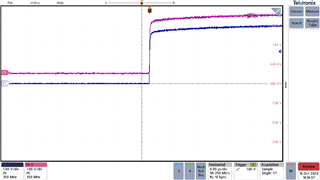Other Parts Discussed in Thread: SK-AM62B-P1, SK-AM62-LP, SK-AM62B, SK-AM62-SIP
Tool/software:
Hi all,
we are trying to configure usb0 to work as host so that when we connect a device like usb it will read the data from the usb.
our hardware connections are made in a way that Vbus, cc1 and CC2 are connected to the +5v. Usb id is connected to 1v8.
Rest of the connections are USB_1_D_CON_P and USB_1_D_CON_N are connected to the USB-c connector.
below are the device tree configurations:
/* Verdin USB_1_ID */
pinctrl_usb0_id: main-gpio1-19-pins-default {
pinctrl-single,pins = <
AM62X_IOPAD(0x01c4, PIN_INPUT_PULLUP, 7) /* (B14) SPI0_D1.GPIO1_19 */ /* SODIMM 161 */
>;
};
/* Verdin USB_1 */
&usbss0 {
ti,vbus-divider;
status = "okay";
connector {
compatible = "gpio-usb-b-connector", "usb-b-connector";
pinctrl-names = "default";
pinctrl-0 = <>;
label = "USB-C";
port {
usb_dr_connector: endpoint {
remote-endpoint = <&usb0_ep>;
};
};
};
};
&usb0 {
dr_mode = "host";
status="okay";
port {
usb0_ep: endpoint {
remote-endpoint = <&usb_dr_connector>;
};
};
};
kindly check this and let me know if i am doing something wrong



